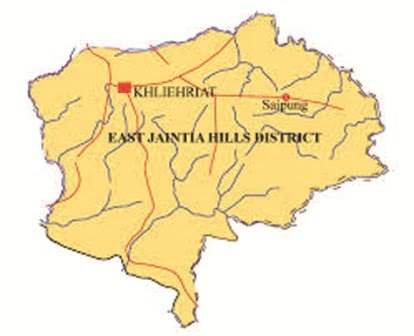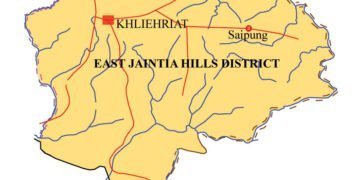In pursuance to government order and in compliance to its direction on reopening of more activities in areas outside the containment zones, the Deputy Commissioner, East Jaintia Hills District has notified the guidelines specifically pertaining to re-opening of schools in the district.
As per the notification issued today, Classes 9 to12 will fully reopen in both urban areas, the reopening of this category is aimed at the completion of courses and preparation for board examinations.
For classes 6 to 8, full opening is permitted in rural areas and partial opening in urban areas. Partial opening entails only consultation, assignments submission and discussion with teachers or counselors in the school premises.
The Deputy Commissioner has also recommended partial reopening of classes 1 to 5 in rural areas only for consultation, assignments submission and discussion with teachers or counselors in the school premises whereas in urban areas classes 1 to 5 should remain closed.
Full opening of classes 9 to12 has also been recommended for the Jawahar Navodaya Vidyalaya (JNV).
According to the generic preventive measures that are to be followed, parental consent for attendance is mandatory and the School Managing Committee should consult with the stakeholders that are parents, district health officials and local community prior to reopening of any category.
“In receiving views and suggestions from the stakeholders, the SMC shall prepare a Plan of Action for school reopening which will include awareness programmes on Covid-19 to all teaching and non teaching staff, sanitisation of the school premises, class rooms, toilets etc. The school authorities are empowered to take any decision pertaining to closure of schools in an event of any suspected Covid-19 cases in consultation with health officials,” the notification said.
The notification also said that awareness programmes for students on Covid-19 and immunity building should be encouraged regularly with the support of the Health Department. It also said that school authorities are also empowered to design a daily plan and restriction on duration of Classes to 30 minutes and a break of 5 minutes after each period.
“A blended approach of three days classes and two days for home assignment may also be considered to reduce exposure,” the notification added.
Stating that online distance learning shall continue to be the preferred mode of teaching and shall be encouraged, the notification said that for schools that are conducting online classes and if some students prefer to attend online classes rather than physically attending school they may be permitted to do so.
“Schools are also at liberty either to reopen for normal classes or continue with the existing arrangements or arrange students in groups (odd/even roll nos. etc) if enrollment is large. Attendance must not be enforced and must depend entirely on parental consent,” the notification said.
It also said that sharing of items like notebook, pens, pencil, eraser, water bottle, etc amongst students should not be allowed. School buses have been exempted from the odd, even rules.
The notification also said that if a student, teacher or employee is sick, they should not come to the school and should follow necessary protocols in this regard. It also said that parents will be solely responsible for maintaining students’ hygiene (uniform, tiffin box, bags, etc).
The notification also stressed on physical distancing of at least six feet to be followed as far as feasible, use of face covers/masks to be made mandatory, frequent hand washing with soap and use of alcohol-based hand sanitisers. Respiratory etiquettes like covering one’s mouth and nose while coughing or sneezing with a tissue, handkerchief, flexed elbow have to be followed.
“Prior to resumption of activities, all work areas intended for teaching/demonstrations etc, shall be sanitized with 1 per cent sodium hypochlorite solution. Schools that were used as quarantine centres should be properly sanitised. The school should display State helpline numbers and also numbers of local health authorities etc to teachers, students, employees to contact in case of any emergency,” the notification said.
It also said that appropriate backup stock of personal protection items like face covers/masks, visors, hand sanitisers etc should be made available by management to the teachers and students. The schools should also ensure availability of sufficient covered dustbins and trash cans and provision for proper disposal of used personal protective items and general waste. Housekeeping employees have to be informed and trained about norms for waste management and disposal.
The notification also said that entrances of the schools are to have mandatory hand hygiene (sanitiser dispenser) and thermal screening provisions and multiple gates/separate gates, if feasible, should be used for entry and exit.
It also said that proper crowd management should be followed and entry of visitors should be strictly regulated, restricted.




























